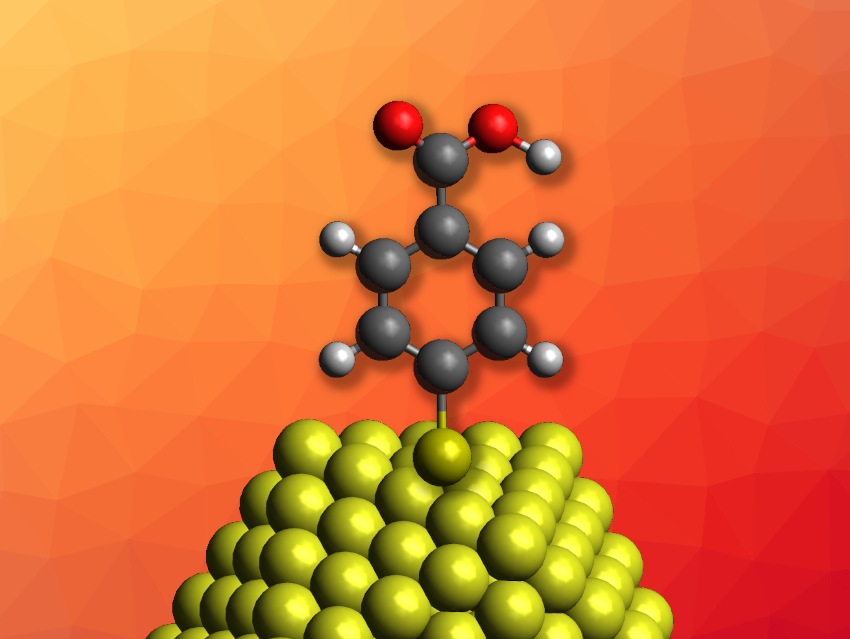Metal nanoparticles can be useful, e.g., in catalysis, medicinal chemistry, or materials science. Generally, such metal nanoparticles are synthesized using organic ligands as stabilizing “capping agents”. The ligands’ head groups bind to the nanoparticle, while their “tails” can affect, e.g., the functionality of the nanoparticles or their solubility and prevent aggregation. Gold nanoparticles, for example, are often stabilized using thiol derivatives.
Roi Baer, Daniel Mandler, The Hebrew University of Jerusalem, Israel, and colleagues have investigated the effect of different capping ligands on gold nanoparticles, in particular, on their redox potentials. The team performed electrochemical oxidations of gold nanoparticles with five different capping agents: citric acid, 2-mercaptobenzoic acid (2-MBA), 4-mercaptobenzoic acid (4-MBA, pictured), mercaptoacetic acid (MAA), and mercaptopropionic acid (MPA). The nanoparticles were adsorbed on a poly(ethylenimine)-functionalized indium tin oxide (ITO) electrode, and the oxidation peak potential of the nanoparticles was measured using linear sweep voltammetry (LSV).
The team found that the capping agents significantly affected the oxidation peak potential of the nanoparticles, a phenomenon they say had not previously been reported. They observed that the peak potentials differ by as much as 71 mV (for gold nanoparticles stabilized by 2-MBA vs. 4-MBA). While the results of density functional theory (DFT) calculations (based on thermodynamics) were in good agreement with the experimentally observed properties of 2-MBA, the same was not true for 4-MBA. The researchers attribute this to kinetic effects. Thus, capping agents can affect the electrochemical oxidation of gold nanoparticles both thermodynamically and kinetically. The work could have applications, e.g., in monitoring ligand exchange reactions between nanoparticles.
- The Effect of the Capping Agents of Nanoparticles on Their Redox Potential,
Pavel Savchenko, Din Zelikovich, Hadassah Elgavi Sinai, Roi Baer, Daniel Mandler,
J. Am. Chem. Soc. 2024.
https://doi.org/10.1021/jacs.4c02524



